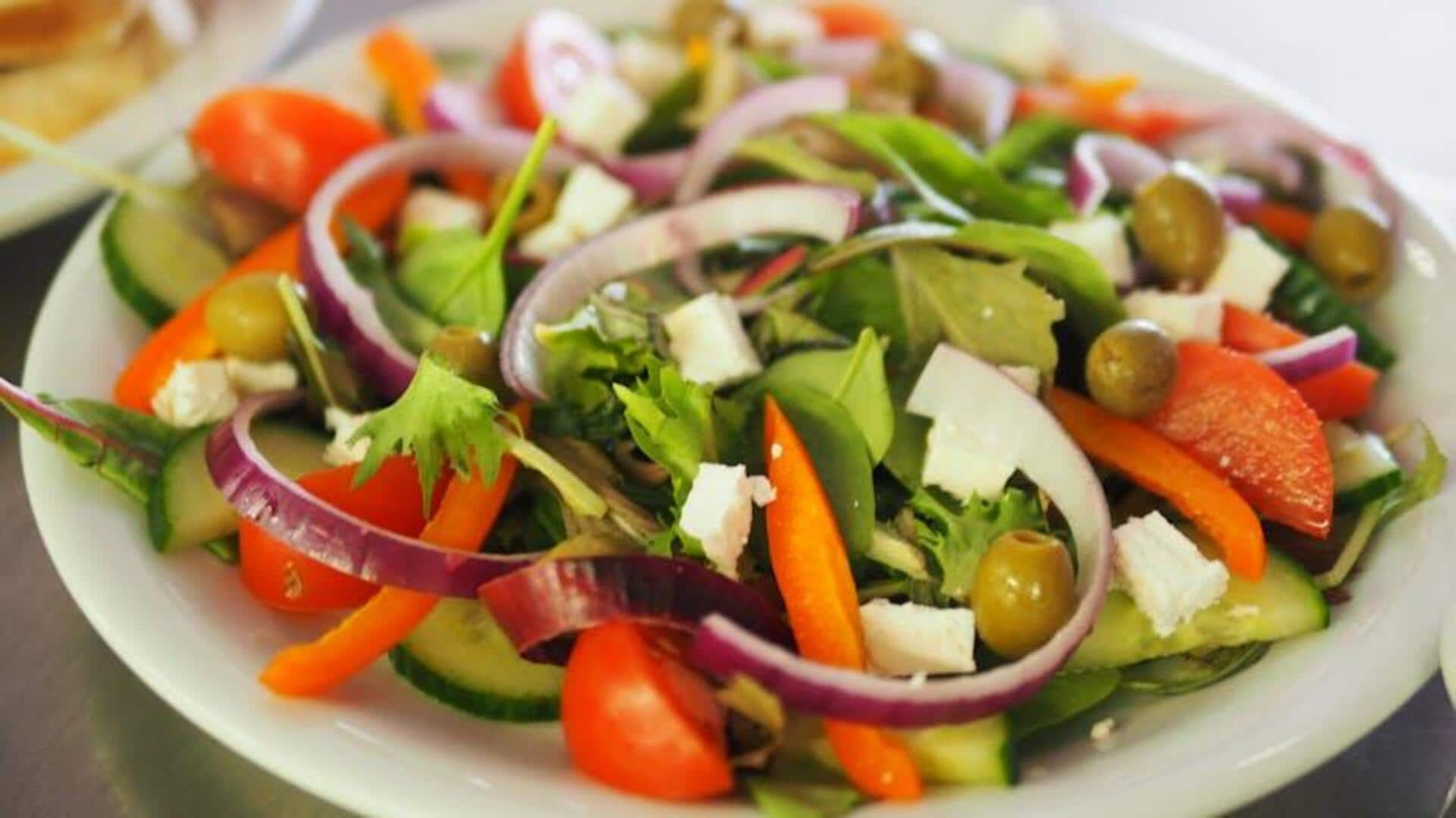
Truth about salad diets: 5 myths busted
What's the story
Salads are often considered to be the holy grail of healthy eating, but misconceptions can prove to be an unhealthy affair. While salads make for a great source of vitamins and minerals, not all salad diets are the same. It is important to know the myths surrounding salad diets to make informed dietary choices. Here are five common salad diet myths busted!
Calorie misconception
Myth: Salads are always low-calorie
Many people believe that all salads are low-calorie, but that's not necessarily true. Ingredients like cheese, nuts, and dressings can add a lot of calories to a salad. A seemingly simple salad can easily go above 500 calories if topped with high-calorie toppings. Be mindful of portion sizes and ingredient choices when making or ordering salads.
Dressing dilemma
Myth: All dressings are healthy
Dressings can make a bland salad flavorful, but not all dressings are healthy. Most store-bought dressings are loaded with added sugars, unhealthy fats, and preservatives that cancel out the health benefits of the vegetables in your salad. Choosing homemade dressings with olive oil and vinegar or lemon juice can be a healthier choice.
Nutritional gaps
Myth: Salads provide complete nutrition
While salads provide a plethora of vitamins and minerals from vegetables, they might also be deficient in essential nutrients such as protein and carbohydrates, if not balanced properly. Adding ingredients like beans or tofu can help make a more nutritionally complete meal. Ensure your salad contains variety of food groups for balanced nutrition.
Raw vs cooked debate
Myth: Raw vegetables are always better
The notion that raw vegetables are always more nutritious than cooked ones is misleading. Cooking certain vegetables like tomatoes or carrots can enhance their nutrient availability by breaking down cell walls and increasing antioxidant levels. Including both raw and cooked vegetables in your diet ensures you get the maximum nutritional benefit from your meals.
Weight loss reality
Myth: Eating only salads leads to weight loss
Relying solely on salads for weight loss might seem effective since they are low-calorie; however, it can lead to nutrient deficiencies over time if other food groups are neglected. A well-rounded diet including whole grains, proteins, fruits, and healthy fats along with salads supports sustainable weight management without compromising nutrition.